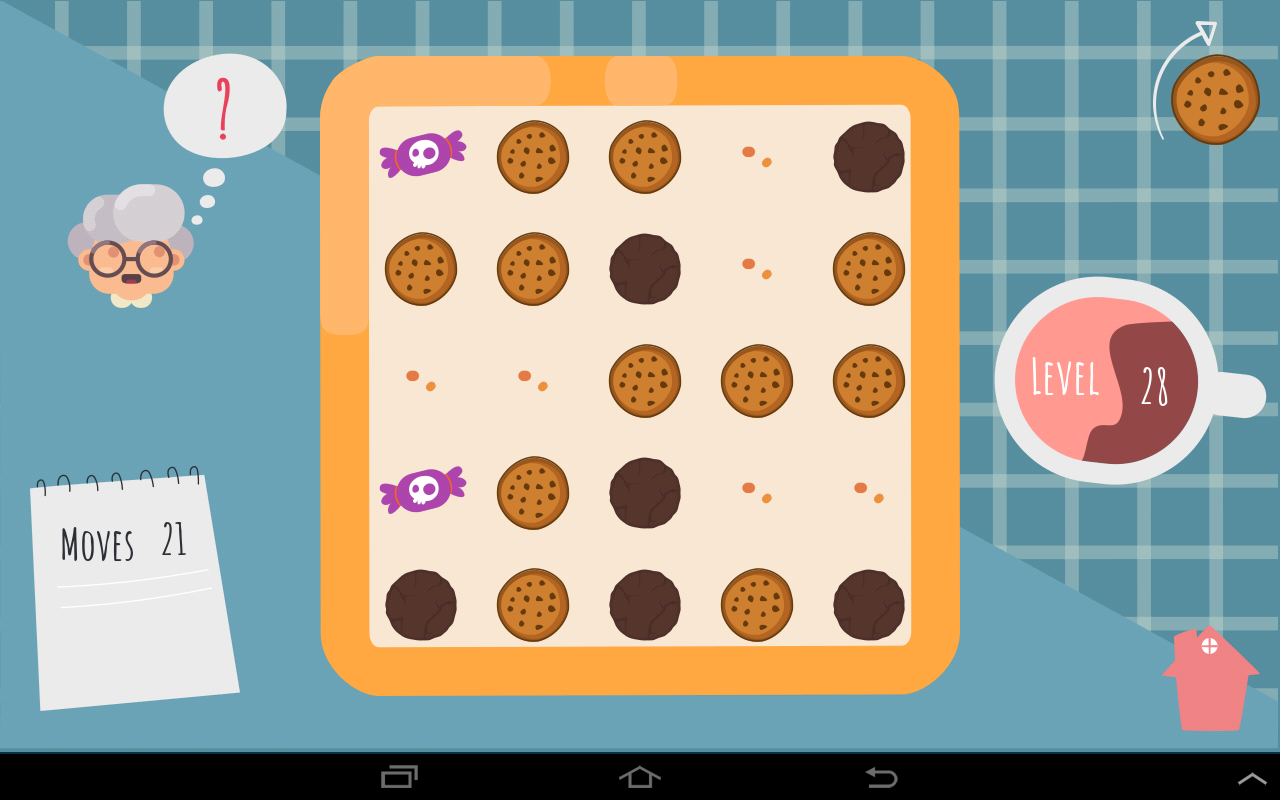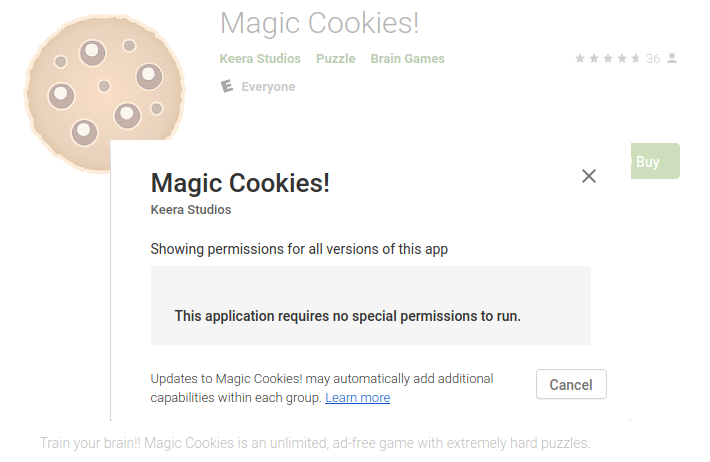Android
,
FRP
,
Functional Programming
,
Functional Reactive Programming
,
Game Programming
,
Games
,
Haskell
,
Ios
,
Mobile Apps
,
Reactive
New Game Magic Cookies 2 Released for iOS and Android
We are really happy to announce Magic Cookies 2, our latest game for Android and iOS. You can download the game here.
Magic Cookies 2 is the sequel to the classic Magic Cookies. We hope MC2 is a lot of fun. The levels in MC2 are a bit easier than the traditional Magic Cookies, but now feature animations, a beautiful design, in-game help, and more kinds of interactive elements.
...
Android
,
Board Games
,
FRP
,
Functional Programming
,
Functional Reactive Programming
,
Game Programming
,
Games
,
Haskell
,
Ios
,
Iphone
,
Mobile Apps
,
Mobile Games
,
Mobile Haskell
Haskell Game Enpuzzled Released for Android and iOS
After two years of work, thousands of commits, and over 100 releases on iTunes and Android, we are very proud to release Enpuzzled, our latest game for Android and iOS. You can download the game here.
...
Android
,
Games
,
Google Play
,
Haskell
,
Ios
,
Mobile Apps
,
Mobile Games
,
Mobile Haskell
,
Privacy
#Safe2Play - Caring for privacy in an interconnected world
In the last few years, the walls of our privacy have become transparent. We are all connected and, with that, our private information has become available to any companies willing to pay for it. The sacrifice is not small, and it applies also to the mobile apps and games we all use. For example, these are the permissions required by a social networking app that millions of people have on their phones:
...
Building a reactive calculator in Haskell (5/5)
In the last few blog posts, we examined how to build a functional calculator web-app using reactive programming. We used the reactive programming library Keera Hails, but the ideas apply to other frameworks as well.
...
Android
,
Haskell
,
Ios
,
Mobile Apps
,
Mobile Games
,
Mobile Haskell
,
Open Source
Andronaut and Curiosity 0.9, Academy, and Open Source
If you have access to Andronaut and Curiosity, you may have noticed a new update in recent weeks: version 0.9. This version will be the final release candidate before version 1.0.
...
Building a reactive calculator in Haskell (4/5)
In the last post we saw how to build a good looking GUI for a reactive calculator app. In this post we are going to implement the model of the application and connect it to the reactive GUI.
...
Building a reactive calculator in Haskell (3/5)
In our last post, we saw how to populate a dynamic page in Haskell from static files, and how to access HTML elements from the page, how to make their attributes and events reactive, and how to connect them using reactive rules.
...
Building a reactive calculator in Haskell (2/5)
In the first post in this series, we saw how to get started with GHCJS with a Hello world, and how to build a basic reactive application. In this next blog post, we will create a more sophisticated view for our reactive calculator app (Fig. 1).
...
Android
,
Code Maintenance
,
Functional Programming
,
Game Programming
,
Games
,
Haskell
,
Ios
,
Iphone
,
Mobile Apps
,
Mobile Games
,
Mobile Haskell
,
Software Engineering
Cleaning the Big Picture - Haskell eXchange 2019 [Talk]
In October we had the great opportunity to give a talk at Haskell eXchange 2019, where we followed up on the discussion of maintaining mobiles games in Haskell.
Thanks a lot to the Haskell eXchange organizers for making this possible, and we are looking forward to future editions of Haskell eXchange! Thank you also to everyone who came to the talk, to those who asked questions, during and after the session, and to those who gave feedback via the app.
...
Android
,
Functional Programming
,
Game Programming
,
Games
,
Haskell
,
Ios
,
Mobile Apps
,
Mobile Games
,
Mobile Haskell
,
Software Engineering
Mobile Game Programming in Haskell - FARM 2019 [Talk]
At the end of August we were delighted to talk at FARM in Berlin about creating pure functional mobile games in Haskell. We explained the minimization of IO in our games, our compositional app/game structure, and how we can focus on creating games while not bothering about technical details like input devices, backends and platforms.
...






![Cleaning the Big Picture - Haskell eXchange 2019 [Talk]](/wp-content/uploads/2019/10/haskell-eXchange-2019-cleaning-2.jpg)
![Mobile Game Programming in Haskell - FARM 2019 [Talk]](/wp-content/uploads/2019/09/FARM-2019-FAWN.png)